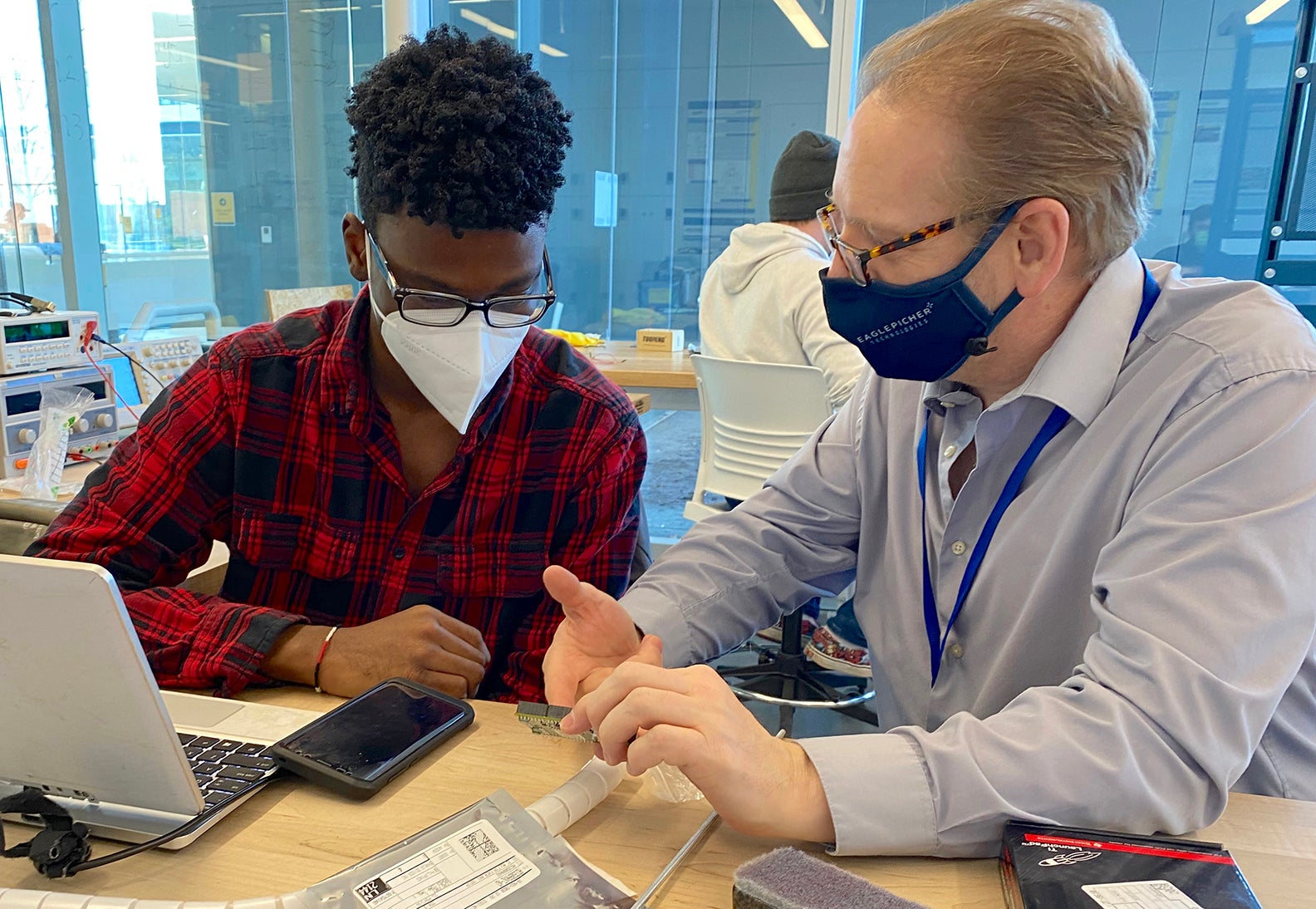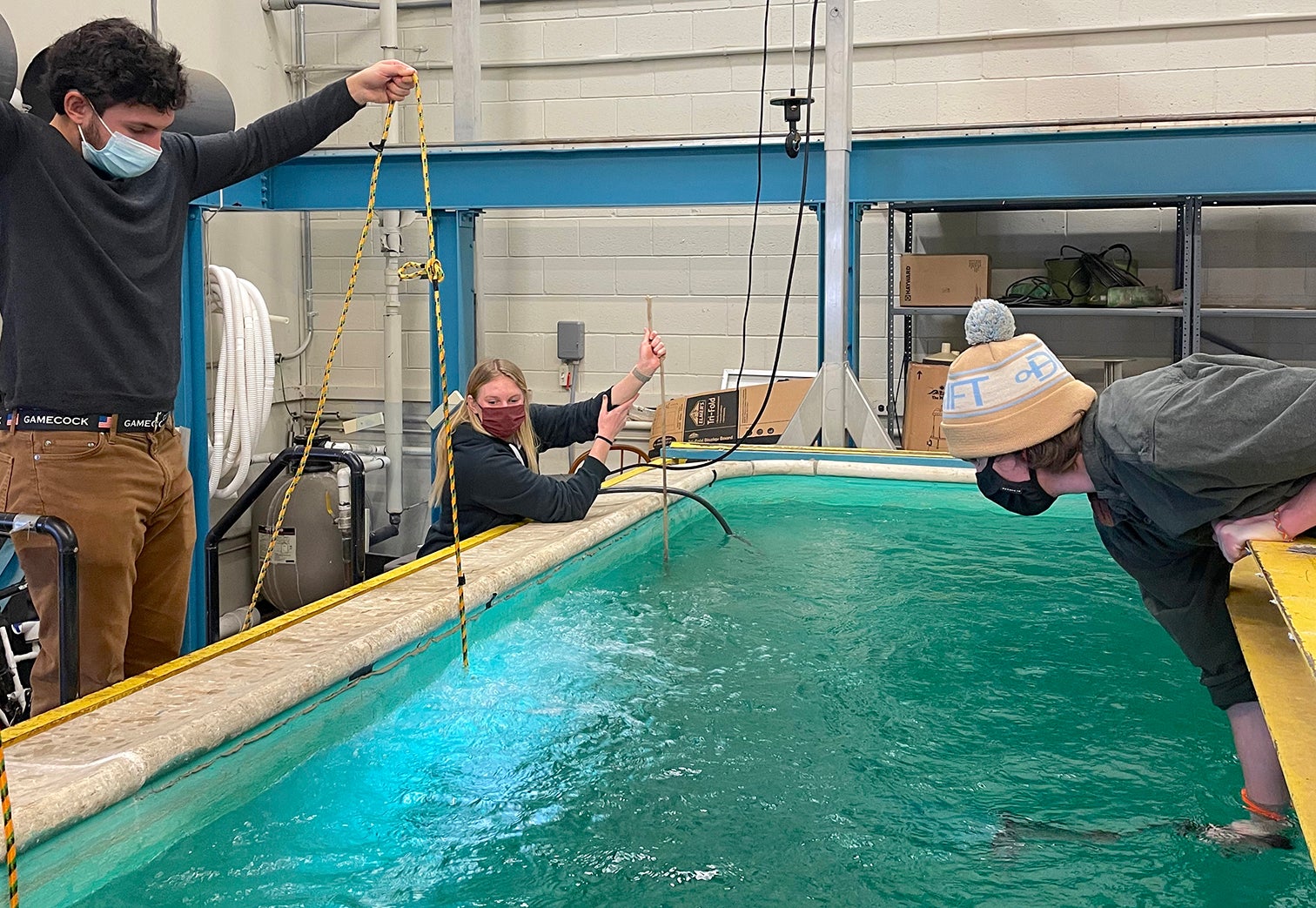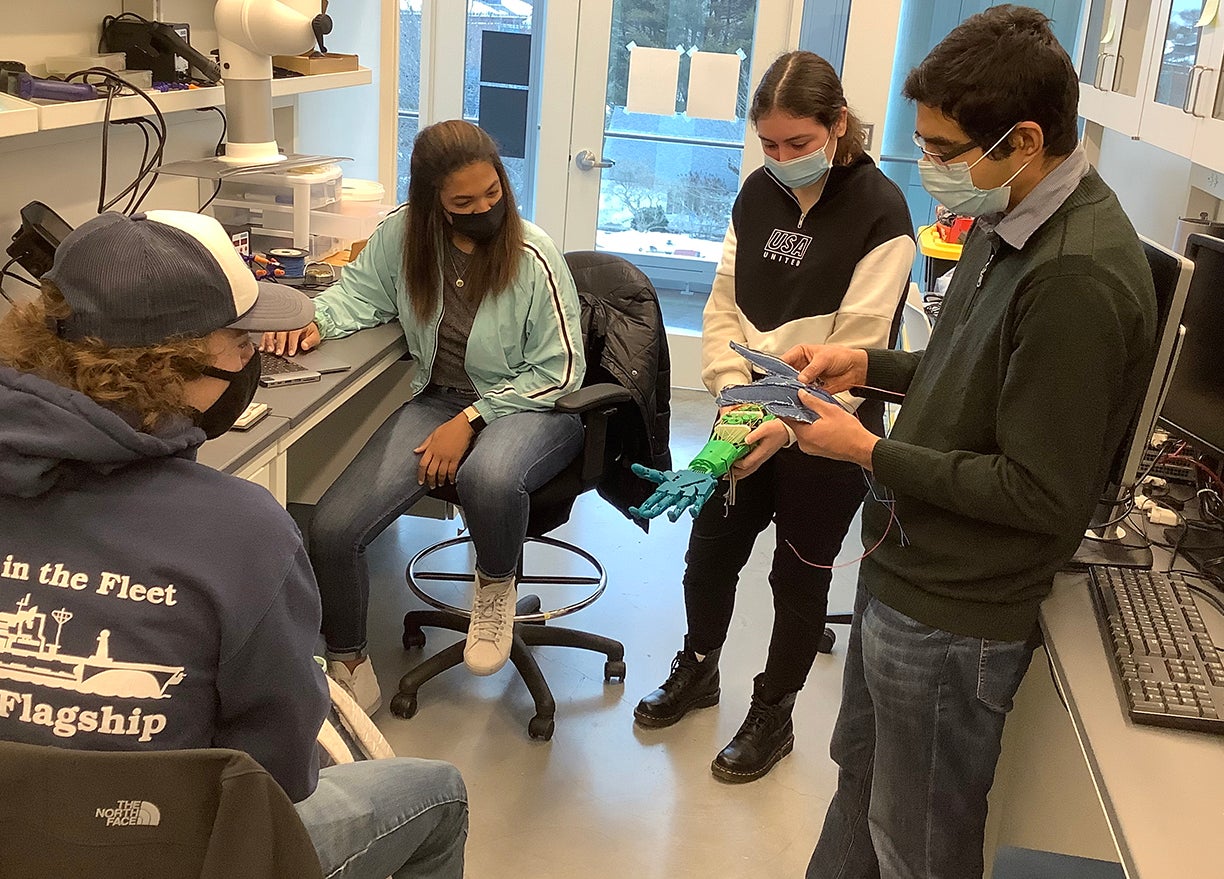KINGSTON, R.I. – March 29, 2021 – Seniors at the University of Rhode Island’s College of Engineering are required to do hands-on, collaborative projects that address a real-world challenge.
Students in the senior capstone design program are assigned projects by companies that typically involve creating a new product, improving an existing product or developing a process for doing something in a new way.
“The senior capstone program is the crescendo for our engineering students,” said Dean Raymond Wright. “These projects are where the students use all of the skills that they’ve learned to develop a hands-on solution for one of the companies we work with.
“Social distancing and the pandemic have created a unique challenge for our capstone students,” said Wright. “Normally, you could find these students around a table, making calculations, building prototypes, and interacting with faculty and with members of industry. Obviously, this can’t happen now, so we have had to find new ways to interact.”

Collaborating with Technology
Inside the new Fascitelli Center for Advanced Engineering, Heather Rojas, Nicholas Diluiso and Jake St. Germain have been working on a miniature drone project in URI’s Intelligent Control & Robotics Lab. Rojas is majoring in computer engineering. Diluiso and St. Germain are studying electrical engineering.
The students have worked as a team, meeting weekly with Assistant Professor Paolo Stegagno, who heads up the robotics lab. Most of the communication has occurred virtually.
“The pandemic has affected our interactions, since it is harder to articulate some of the issues we’ve had virtually than it would be to simply show Professor Stegagno in person,” said Rojas, who is from Warwick. “This has forced us to really understand the material better and learn the correct terminology.”

As far as access to the robotics lab and the drones, that too has been a challenge. In the beginning stages of the project, they worked remotely. Then they were allowed to work in person, following masking and social distancing requirements. Then they weren’t permitted into the lab during the statewide pause in Rhode Island. Now, the students are back in the lab, following the COVID-19 protocols.
“The constant change has been difficult and has forced us to change the specifications of our project,” said Rojas. “One of the hardest challenges has been potential COVID exposure and quarantines. Our team was forced to quarantine for two weeks straight at one point and we’ve had to quarantine on several other occasions. When we can’t have our entire group together, it causes delays and missed deadlines.”
Backup Plans
Jesse Cobb and his capstone design teammates in ocean engineering have been working with an Ecosystem Passive Acoustic Monitoring (Eco-PAM) system to gain a better understanding of why marine mammals react to certain things the way they do.
“COVID has made it very hard to accomplish work on the project,” said Cobb, who is from Chicago. “We don’t get to meet in person as a research team and the resources available to us have become limited. It’s harder to find information through online conversation compared to face-to-face interaction.”
The most important stage of the project, a field test of the system off the coast of Martha’s Vineyard, was canceled due to COVID restrictions, causing the team to adapt.
“Since COVID prevented us from obtaining our own data to process, we’ve been using data from pile drivings from the Coastal Virginia Offshore Wind Farm to practice different direction of arrival algorithm methods,” said Cobb’s teammate, Ari Sawyer, from Newburyport, Massachusetts.
Unexpected Benefit
“As industry has moved away from in-person meetings and personal interaction during the pandemic, our students too have learned to use technology to build remote, virtual teams,” said Wright. “As an unexpected result, working on engineering challenges remotely is actually adding to the capstone experience. Virtual collaboration is allowing engineering to happen with team members all over the globe, and we think this method will remain long after the pandemic ends.”

